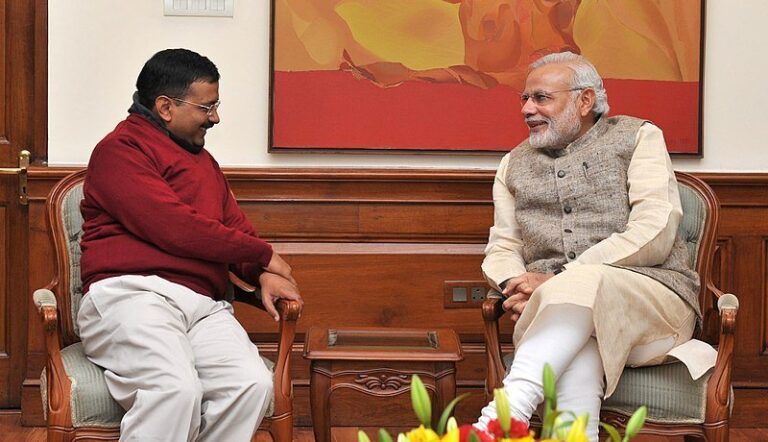
In an unprecedented gesture, Delhi Chief Minister Arvind Kejriwal met Prime Minister Narendra Modi yesterday for the first time since the general election to seek collaboration in Yamuna water conservation and state’s health insurance model. Afterward, the Delhi CM suggested he may be softening his previously irresolute stance against the Centre’s flagship health insurance scheme Ayushman Bharat in favour of the Delhi government’s own Mohalla Clinics.
Kejriwal insisted in a tweet that the Mohalla Clinics scheme “is much bigger and wider in scope” than Ayushman Bharat. However, he said it would be “[examined]” if the two initiatives could be integrated. The Chief Minister extended an invitation to the Prime Minister to visit a Mohalla clinic.
In a separate post, the Aam Aadmi Party (AAP) leader said it was “[imperative]” for the Delhi and central governments to “work together” for the purposes of developing the national capital. NDTV said that the Chief Minister has “voiced an uncharacteristically conciliatory tone” after the meeting, noting that Kejriwal and the AAP “have been one of the harshest opponents of the Prime Minister and the BJP.”
As Health Issues India previously reported, “health is expected to take the electoral centre stage” in next year’s polls to elect the Delhi Legislative Assembly. The AAP under Kejriwal secured an outright majority in a 2015 special assembly election, defeating the BJP who had secured a plurality of seats in the 2013 election but failed to form a government. However, the saffron wave made lanfall in Delhi during this year’s Lok Sabha elections which saw the BJP win all seven parliamentary seats in the capital.
Political contentions between the AAP and the BJP spilled over into the discourse surrounding health, with the BJP suggesting its agenda next year would feature healthcare as its crux. The Delhi government has repeatedly refused to implement Ayushman Bharat in the capital, ignoring exhortations from Union Health Minister Dr Harsh Vardhan to do so. Delhi Health Minister Satyender Jain queried “Delhi has a population of over two crore and this scheme can benefit only ten lakh; what is the point of implementing it here?”
Kejriwal himself described Mohalla Clinics as being ten times better than Ayushman Bharat earlier this month. In a bitter reply, Vardhan deemed Mohalla Clinics “an utter flop” and told Kejriwal “all your fancy schemes, including the much-touted Universal Coverage Health Scheme, announced more than a year ago, are still lying on the drawing boards awaiting implementation even after four and a half years.” The Delhi government earlier weathered a legal challenge seeking the High Court to intervene and compel implementation of Ayushman Bharat in the national capital.
As previously noted by Health Issues India, “both schemes complement each other, with an aim to accomplish the universal healthcare target. Political complications and a tug-of-war over credit stand in the way of consolidating the two models.” Now, with a more amicable discourse seemingly emerging now between the two parties, it is possible that the impasse over health models may soon be broken and an approach towards guaranteeing health for all may be formulated – eschewing partisanship and politicking for the welfare of Delhi citizens.

